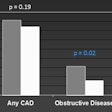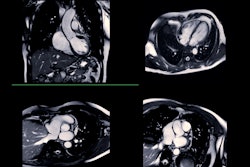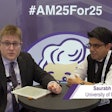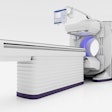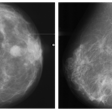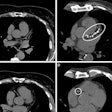More in Home
AI chatbots tested on patient questions about Lu-177 PSMA-617
December 5, 2024
Video from RSNA 2024: How rads can handle election results
December 5, 2024
The 2024 PACSMan Awards: Show me the money
December 5, 2024
GE HealthCare targets precision care, workflow improvements
December 5, 2024
Study shows women will pay for AI breast cancer screening exam
December 5, 2024
Cardiac calcium score screening CT can also detect lung cancer
December 5, 2024
Video from RSNA 2024: Theranostics on the rise
December 4, 2024
Video from RSNA 2024: Navigating the radiologist job market
December 4, 2024
Video from RSNA 2024: Exhibit Hall report
December 4, 2024
AI reduces time to interpretation of CT cervical spine exams
December 4, 2024
Peru relishes its day in the sun at McCormick Place
December 4, 2024
PI-RR system effective for predicting prostate cancer recurrence
December 4, 2024

